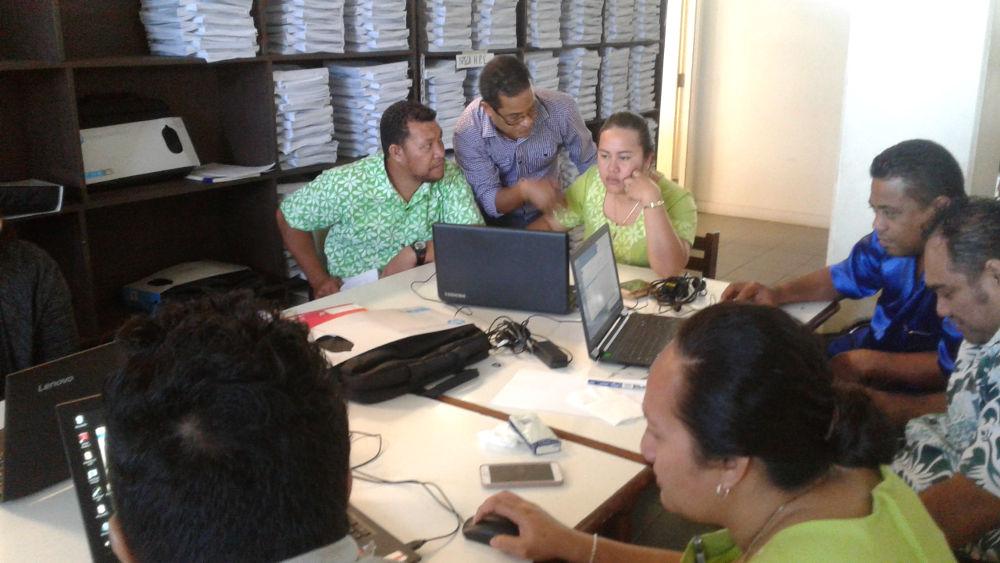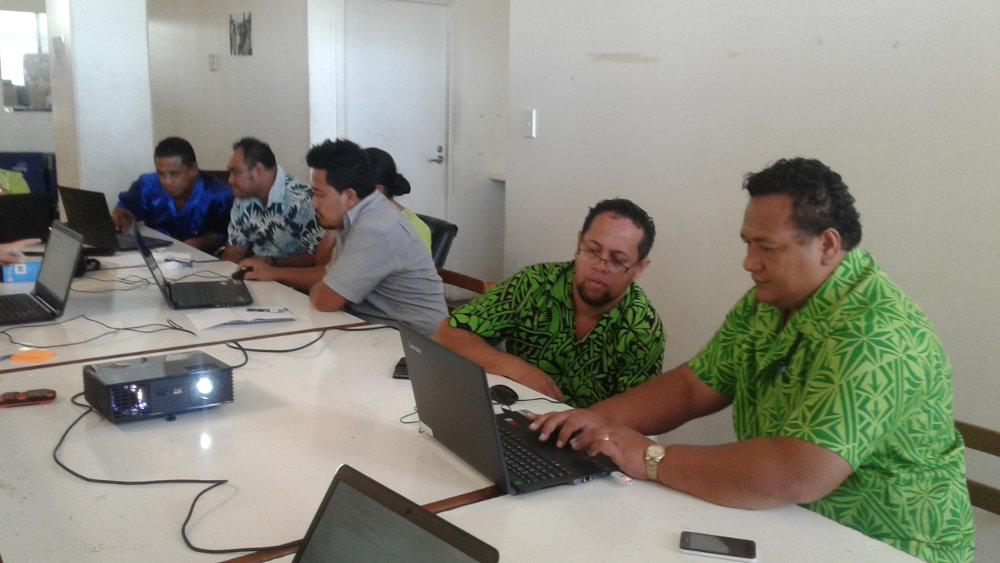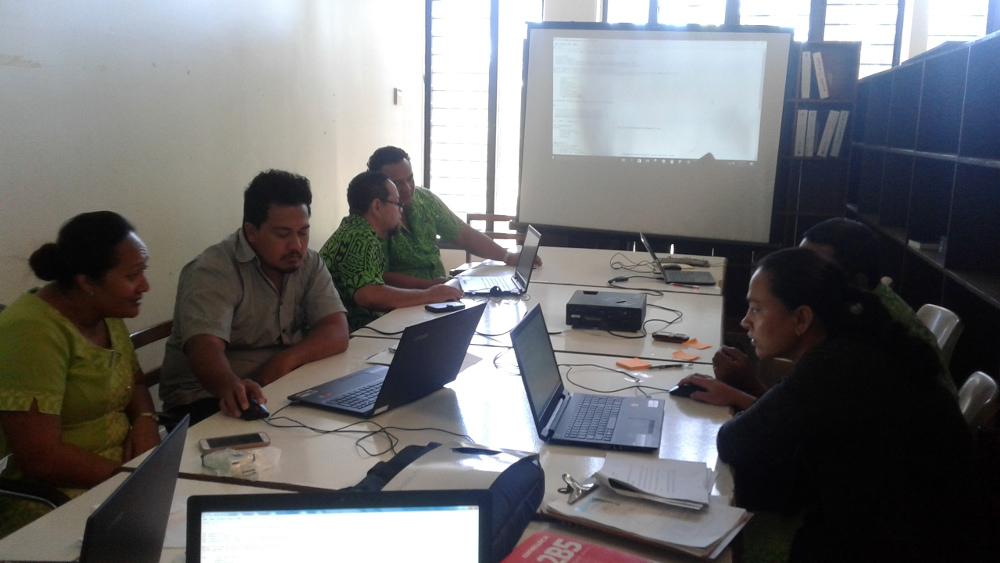The Pacific Community (SPC) is supporting Samoa Ministry of Education, Sport and Culture (MESC) in developing a more user-friendly way of reporting individual student performance in a format that will be useful for teachers, school administrators, and even parents. From September 19-25, The Educational Quality Assessment Program (EQAP) of SPC engaged in a capacity development activity with the MESC aimed at generating informative reports of student level performance.
Assessment of student learning is complex and it is important that student results are communicated to the students, their teachers and their families in a manner that is accessible and informative. One way of doing this is to provide what is known as a KIDMAP, a visual report of a student's educational performance on an assessment. Using a chart where the assessment items are arranged according to difficulty level, the KIDMAP indicates how successful the student has been with items at each level of difficulty. The KIDMAP type of report is a first for Samoa and will be among the first large-scale roll-outs of its kind in the Pacific.
Adrian Alamu, an EQAP educational assessment specialist worked with 10 staff of MESC in Apia to carry out capacity development activities in generating and using KIDMAP reporting. The work is in line with the new MESC approach to complement traditional large-scale assessment reporting that is focussed on summary statistics, with local level reporting that focusses on individual student outcomes. Local level reporting is important for monitoring student outcomes as the students progress through several years of school. The KIDMAP reporting activity also strengthens existing technical and analytical capacity within MESC related to large-scale assessments.
The KIDMAP reporting activity is supported by the Australian Government (DFAT) and includes technical assistance from the Australian Council for Educational Research (ACER). EQAP and ACER have enjoyed a close partnership working on assessment projects such as the Pacific Islands Literacy and Numeracy Assessment (PILNA) and capacity development across the Pacific.


